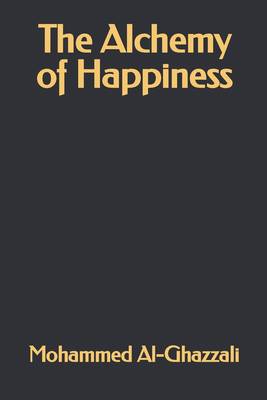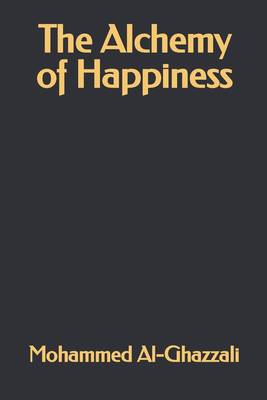
- Retrait gratuit dans votre magasin Club
- 7.000.000 titres dans notre catalogue
- Payer en toute sécurité
- Toujours un magasin près de chez vous
- Retrait gratuit dans votre magasin Club
- 7.000.0000 titres dans notre catalogue
- Payer en toute sécurité
- Toujours un magasin près de chez vous
Description
This treatise on the Alchemy of Happiness, or Kimiai Saadet, seems well adapted to extend our knowledge of the writings of Ghazzali and of the opinions current then and now in the Oriental world. Although it throws no light on any questions of geography, philology or political history, objects most frequently in view in translations from the Oriental languages, yet a book which exhibits with such plainness the opinions of so large a portion of the human race as the Mohammedans, on questions of philosophy, practical morality and religion, will always be as interesting to the general reader and to a numerous class of students, as the facts that may be elicited to complete a series of kings in a dynasty or to establish thesite of an ancient city can be to the historian or the geographer. I translate it from an edition published in Turkish in 1845 (A. H.,1260), at the imperial printing press in Constantinople. As no books are allowed to be printed there which have not passed under the eyes of the censor, the doctrines presented in the book indicate, not only the opinions of eight hundred years since, but also what views are regarded as orthodox, or tolerated among the orthodox at the present day. It has been printed also in Persian at Calcutta. In form, the book contains a treatise on practical piety, but as is the case with a large proportion of Mohammedan works, the author, whatever may be his subject, finds a place for observations reaching far wide of his apparent aim, so our author is led to make many observations which develop his notions in anatomy, physiology, natural philosophy and natural religion. The partisans of all sorts of opinions will be interested in finding that a Mohammedan author writing so long since in the centre of Asia, had occasion to approve or condemn so many truths, speculations or fancies which are now current among us with the reputation of novelty. Many of the same paradoxes and problems that startle or fascinate in the nineteenth century are here discussed. He came in contact, among his contemporaries, with persons who made the same general objections to natural and revealed religion, as understood by Mohammedans, asare in our days made to Christianity, or who perverted and abused the religion which they professed for their own ends, in the same manner as Christianity is abused among us. And he engaged with earnestness now truthfully, and now erroneously, in refuting these men. His usual stand-point in discussion is equally removed from the most extravagant mysticism, and literal and formal orthodoxy. He attempts a dignified blending of reason aud faith, requiring of his fellow men unfeigned piety in the temper and tone of an evangelical Christian. He reminds his readers, in these discourses, that they are not Mussulmans if they are satisfied with merely a nominal faith, and treats with scorn those who are spiritualists only in language and dress. It is too narrow a view to adopt, in regard to a man of the sublime character of Ghazzali, that he obtained his ideas from any one school of thinkers, or that being in fellowship with the Soofies, that he was merely a Soofi. He was living in the centre of Aryan peoples and religions. He may have had his doctrine of the future life shaped byZoroaster, and have been influeuced by the missionaries of the Buddhists. The practical religion taught in these homilies will give a favorable opinion of the state of mind of the more intelligent Mussulmans. They contain not the Mohammedanism of the creed or the catechism, but of the closet and the pulpit. The tenor of the book establishes the truth of Ibn Khallikan's remark in his Biographical Dictionary that "Ghazzali's ruling passion was making public exhortations."
Spécifications
Parties prenantes
- Auteur(s) :
- Editeur:
Contenu
- Nombre de pages :
- 104
- Langue:
- Anglais
- Collection :
- Tome:
- n° 15
Caractéristiques
- EAN:
- 9781652379508
- Date de parution :
- 28-12-19
- Format:
- Livre broché
- Format numérique:
- Trade paperback (VS)
- Dimensions :
- 152 mm x 229 mm
- Poids :
- 163 g

Les avis
Nous publions uniquement les avis qui respectent les conditions requises. Consultez nos conditions pour les avis.






